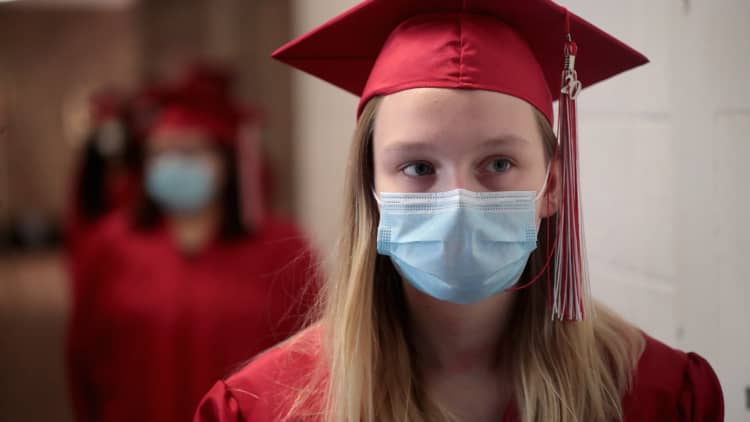
Most students can't wait to get back into the classroom, even as more schools extend remote learning indefinitely.
The University of Alabama system said it intends to return to on-campus instruction, while the California State University System announced that all students, enrolled on 23 campuses, will take fall classes online. Other schools have proposed a blended approach.
On thing is clear: Even after it is deemed safe to return to school, it won't be a return to what was considered normal.
"We can never unlearn the things we've learned the last few months during Covid-19," said Robert Franek, editor in chief of The Princeton Review and author of "The Best 385 Colleges."
More from Personal Finance:
Colleges consider a tuition freeze amid pandemic
Demand for refunds intensifies among college students
College enrollment could drop if schools stay closed
The coronavirus crisis laid bare how ill-prepared most schools had been when it came to remote learning capabilities. From grade school through graduate school, many institutions struggled to get up to speed as classes moved online nearly overnight.
Going forward, many educators have said they will incorporate aspects of virtual learning in their approach to teaching.
Some schools have already committed to adopting a "hybrid" model to education in and outside the classroom in the years ahead.
For starters, students will likely see smaller classes and staggered scheduling, which could include alternating days of the week or times of the day, to help limit the number of people physically present in a building at any time, according to guidelines set by the American Federation of Teachers.
As a result, kids will spend much less time in brick-and-mortar classrooms. "We know that those virtual opportunities are going to be valuable," Franek said.
Still, students overwhelmingly prefer in-person instruction over online learning.
Roughly two-thirds of all college and graduate students said online classes aren't as effective as in-person instruction, according to a survey of 14,000 students in April by Niche.com.
Research by the Collaborative for Student Growth at NWEA, a national nonprofit that assesses learning, found that current school closures due to Covid-19 could result in substantially lower achievement levels.
It's a hard sell; people like live teaching.Mayssoun BydonFounder of IHL Prep
"It's a hard sell; people like live teaching," said Mayssoun Bydon, founder and managing partner of The Institute for High Learning, or IHL Prep, an educational consulting firm.
But now that they've set up the infrastructure, the onus is on schools and faculty to make this experience better, Bydon said.
"Professors are going to have to step up," she said. "Despite the clamor and the complaints about it, remote learning is going to be here to stay."


